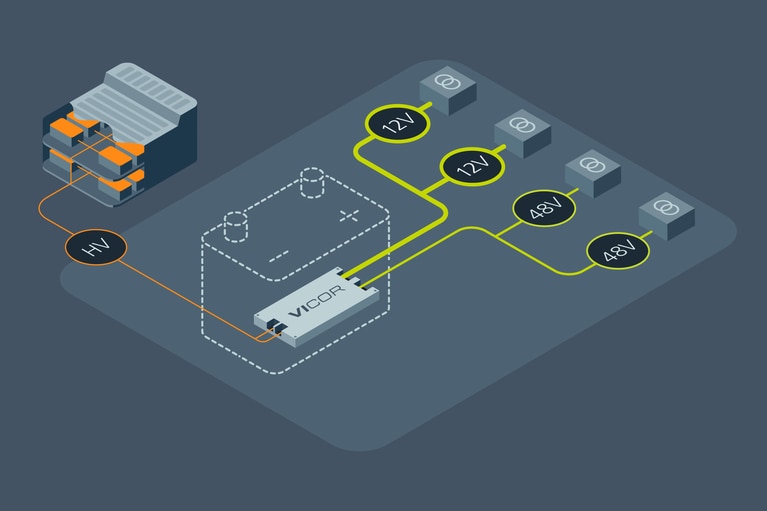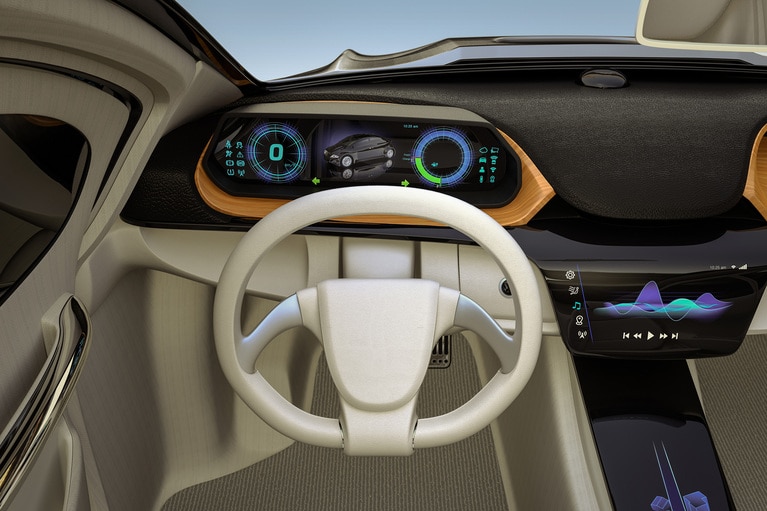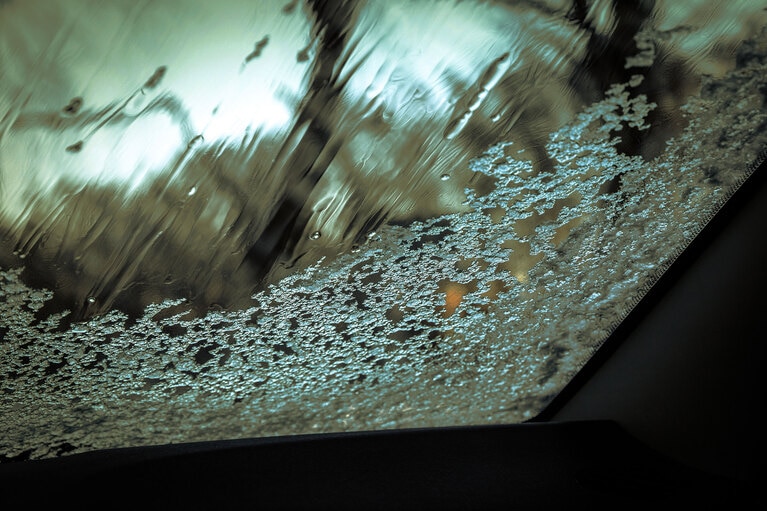
Future-proof automotive high-voltage-to-SELV conversion
Legacy 12V architecture is no longer capable of sustaining the rising electronic loads in automobiles. Learn how power modules hasten the transition to 48V
Discover why more power-efficient systems are essential in the design of tomorrow’s electric vehicles. Listen to the podcast.
Podcast with Alix Paultre, Electronic Design, and Greg Green, Director of Automotive Marketing, Vicor
In this episode of Inside Electronics, we talk about the importance of sophisticated and efficient power systems in the designing the next generation of electric vehicles (EVs). We also addressed the equally important charging infrastructure that will be needed.
Today’s EVs are being infused with a host of cutting-edge technology, from AI to wide-bandgap semiconductors. In turn, the supporting power electronics must be as advanced as the systems they’re driving.
Innovative vehicle electrification solutions have accelerated the evolution of automotive system design. Added features that increase the operational power demands will thus influence how designers source power for various in-vehicle systems.
Future-proof automotive high-voltage-to-SELV conversion
Legacy 12V architecture is no longer capable of sustaining the rising electronic loads in automobiles. Learn how power modules hasten the transition to 48V
AI for space applications
AI has the potential to change our world with applications delivering real impact. Learn how Spacechips is powering the next generation of AI in space
Power modules simplify creepage and clearance design solutions for electric vehicles
Overmolding is the key to solving arcing issues in 48V automotive power systems
48Vのパルス電力により、車のフロントガラスの解氷を60秒で実現
ベターフロスト社は、パルス電力を活用することで、自動車のフロントガラスの解氷を60秒足らずで実現。Vicorの電源モジュールと48V電源イノベーションについて詳しくみる。



